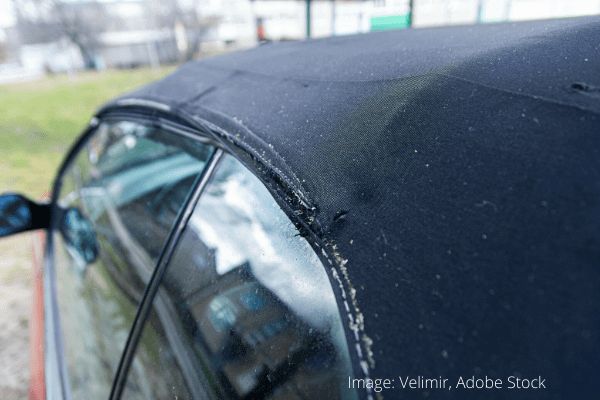Keeping car window seals properly lubricated is an important part of vehicle maintenance. Lubricating the seals helps prevent cracking, drying out, and distortion. It also enables the windows to slide up and down smoothly. With so many lubricant products on the market, choosing the right one for your car’s window seals can be confusing. This article will examine the different types of lubricants available and provide recommendations on the best lubricant for car window seals.
Page Contents
Types of Lubricants for Window Seals
There are three main types of lubricants commonly used on car window seals:
- Silicone-based
- Petroleum-based
- Soap-based
Each has advantages and disadvantages for use on window seals. Here is a comparison:
Silicone-Based Lubricants
Silicone-based lubricants are made from silicone polymers. They are designed to adhere well to rubber and plastic surfaces. Key features and benefits of silicone lubricants include:
- Provide long-lasting lubrication. Silicone’s slick surface enables parts to slide smoothly.
- Repel water. Silicone’s hydrophobic properties prevent washout in wet conditions.
- Withstand extreme temperatures. Can perform in very hot or cold environments.
- Resist drying out. Does not evaporate easily or absorb into materials.
On the downside, some silicone lubricants can cause rubber window seals to soften over time. Check manufacturer recommendations.
Petroleum-Based Lubricants
Petroleum lubricants, such as gear oil or Vaseline, are derived from crude oil. They are fairly thick fluids designed for heavy lubrication. Features of petroleum-based lubricants are:
- Good lubricity. Petroleum products provide a slick film for motion.
- Water resistance. Petroleum repels water well.
- Low cost. Among the most affordable lubricant options.
Drawbacks are that petroleum lubricants can dry out quickly and lack versatility. They may also damage certain rubbers and plastics.
Soap-Based Lubricants
Soap-based lubricants contain fatty acids that react with alkalis to form a slippery substance. Examples include glycerin and lithium soap. Benefits of soap lubricants:
- Good compatibility. Soaps lubricate most surface types effectively.
- Easy availability. Simple soaps are very accessible.
- Low toxicity. Soap lubricants are non-hazardous.
However, soap lubricants lack durability. Water washes them away, and they can also attract dirt. Frequent reapplication is necessary.
Choosing the Best Lubricant for Window Seals
When selecting a window seal lubricant, silicone-based products tend to perform the best. Here are some reasons why:
- Silicone withstands weathering. Won’t wash off or dry out from sun, rain, or temperature swings.
- Long-lasting slick surface. Only occasional reapplication needed.
- Flexible adherence. Silicone molds itself to the seal surface for maximum contact.
- Non-staining. Won’t leave greasy residue or spots.
Silicone lubricants specifically designed for rubber are ideal, as they will condition the seals without damaging them. Avoid using petroleum jelly or grease, as these can cause seals to swell or harden over time.
Recommended Silicone Lubricant Products
Here are some top-rated silicone lubricants for car window seals:
| Brand | Product | Key Features |
|---|---|---|
| Shin-Etsu | Silicone Grease | – Safe for rubber and plastics – Withstands -50°F to 500°F – Long-lasting formula |
| Permatex | Ultra Slick Silicone Lubricant | – Conditions seals – Prevents binding/sticking – Wide temp range formula |
| Blaster | Silicone Lubricant | – Prevents freezing in winter – Protects against cracking – Repels water |
| 3-IN-ONE | Multi-Purpose Silicone Lubricant | – Reduces friction and noise – Safe on plastics – Protects rubber |
These products all have excellent reputations for conditioning rubber window seals to keep windows sliding smoothly. The Shin-Etsu silicone grease, in particular, is a top choice recommended by auto mechanics.
How to Apply Lubricant to Window Seals
Once you have selected an appropriate silicone-based lubricant, follow these steps to apply it:
- Clean the window seals first. Use a cloth with glass cleaner or alcohol to remove any dirt or old lubricant residue.
- Apply the lubricant directly onto the seals. Use a small brush or applicator for hard-to-reach spots.
- Spread the lubricant evenly along the full length of the seals. Make sure to coat both sides of each seal.
- Run the car windows up and down a few times to transfer the lubricant evenly across the seals’ surfaces.
- Wipe away any excess lubricant with a clean cloth. A thin coating is sufficient.
- Consider applying an UV-protectant sealant to maximize longevity.
Take care not to get silicone lubricant on the car’s paint finish, as this could be challenging to remove. Reapply the lubricant every 6-12 months, or whenever windows do not easily slide up and down.
Benefits of Proper Window Seal Lubrication
Consistently lubricating your car’s window seals provides several important benefits:
- Prevents drying out – Lubricant keeps rubber seals conditioned and flexible.
- Reduces friction – Enables smooth up and down sliding motion.
- Stops sticking – Prevents seized or frozen windows.
- Lessens wear – Allows seals to last longer without cracking or damage.
- Reduces wind noise – Lubed seals create better air seal with doors.
- Improves appearance – Prevents unsightly cracked seals.
Properly maintaining your car’s window seals with silicone lubricant will keep the windows functioning properly while also helping protect the seals and extend their lifespan.
Conclusion
Regularly lubricating car window seals with a high-quality silicone product is the best way to keep windows working smoothly while avoiding expensive seal repairs or replacements. Silicone lubricants adhere well to rubber, repel water, withstand temperature extremes, and avoid drying out. Brands like Shin-Etsu, Permatex, and Blaster make reliable silicone lubes safe for automotive window seals. Apply a thin coating along the seals’ surfaces every 6-12 months to prevent sticking, reduce wind noise, and prolong the seals’ life.
